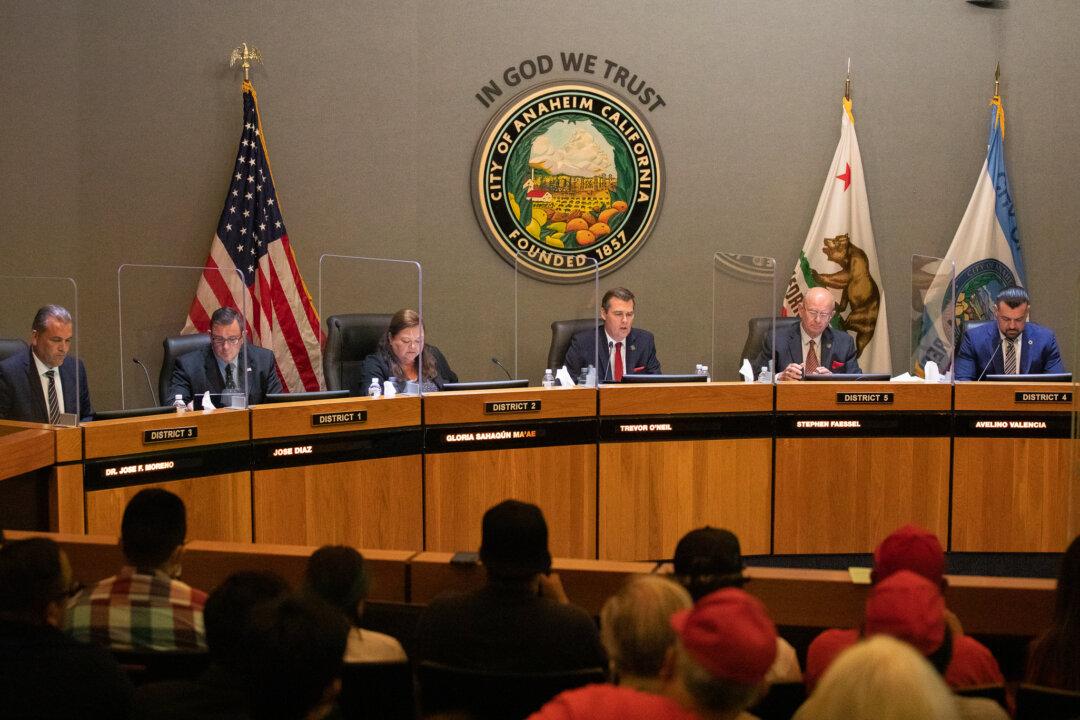ANAHEIM, Calif.—The Anaheim City Council is expected to consider June 7 directing staff to recommend an independent investigation into alleged corruption as fallout from an FBI probe continues.
The council may also consider adopting campaign finance reform measures that would require council members and mayors to abstain from voting on issues that could benefit campaign donors and political action committees, or PACs.





